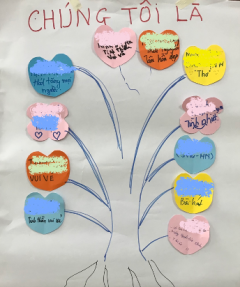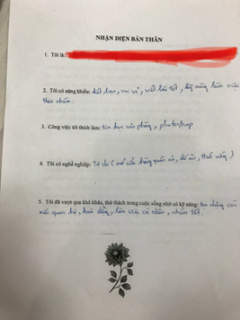Our EDID team is pleased to share their latest update on the first fieldwork conducted in Hanoi, Vietnam, from May4-7,2022.
The First Fieldwork of Engendering Disability Inclusive Development: Vietnam case study (EDID)
EDID conducted its first fieldwork in Hanoi, Vietnam, from May 4th to 7th, 2022. The four-day fieldwork was designed with the following objectives in mind:
- Introduce the research project to women and girls with disabilities and other stakeholders.
- Review the impact of legislation and policies on the disability of women and girls with disabilities and their participation.
- Engage participants in the development of knowledge through tailored activities.
- Understand the experiences of women and girls with disabilities who are part of leadership and activism.
We accomplished these objectives through activities such as a general introduction followed by sessions on ethical considerations and consent forms to ensure participants understood and decided to participate voluntarily. Participants acquired specific knowledge and skills, such as Asset-based community development training, an interview technique, and a rights monitoring model. The last activities, interviews, and focus group discussions provided the most profound insights into the leadership and activism of women and girls with disabilities.
Through four-day of activity, we achieved several significant outcomes:
- Participants understood the ethical principles of the research.
- Women and girls from various social, community and disability backgrounds actively participated in training research sessions.
- Women with disabilities provided vital information about their participants, challenges and opportunities and the spaces for them to participate.
- Participants shared their initial understanding of leadership and activism during the workshops and discussions.
- Two women were elected to represent the participants to provide the research team with guidance based on their context and needs.
During the four days, we also reflected on the process of conducting the fieldwork and the participation of women and girls and our partners to draw critical lessons:
- The local context always plays a significant role in choosing the best time for participants to participate.
- Girls should have more opportunities to take an active role in age-appropriate spaces.
- It is pertinent to acknowledge the colonial power matrix between universities and DPOs, researchers and participants, as well as unequal resources and voices among DPOs.
- Through reflection on ourselves and the process, and by fostering local voices, we are aiming to unsettle colonial structures that govern funding, process, relationships, and outcomes in research.

This image partially captures participant introductions and the gifts they would bring to the training session (Asset-based community development training session). Their gifts/talents included songs, poems, beautiful minds, a positive spirit, and enthusiasm.
